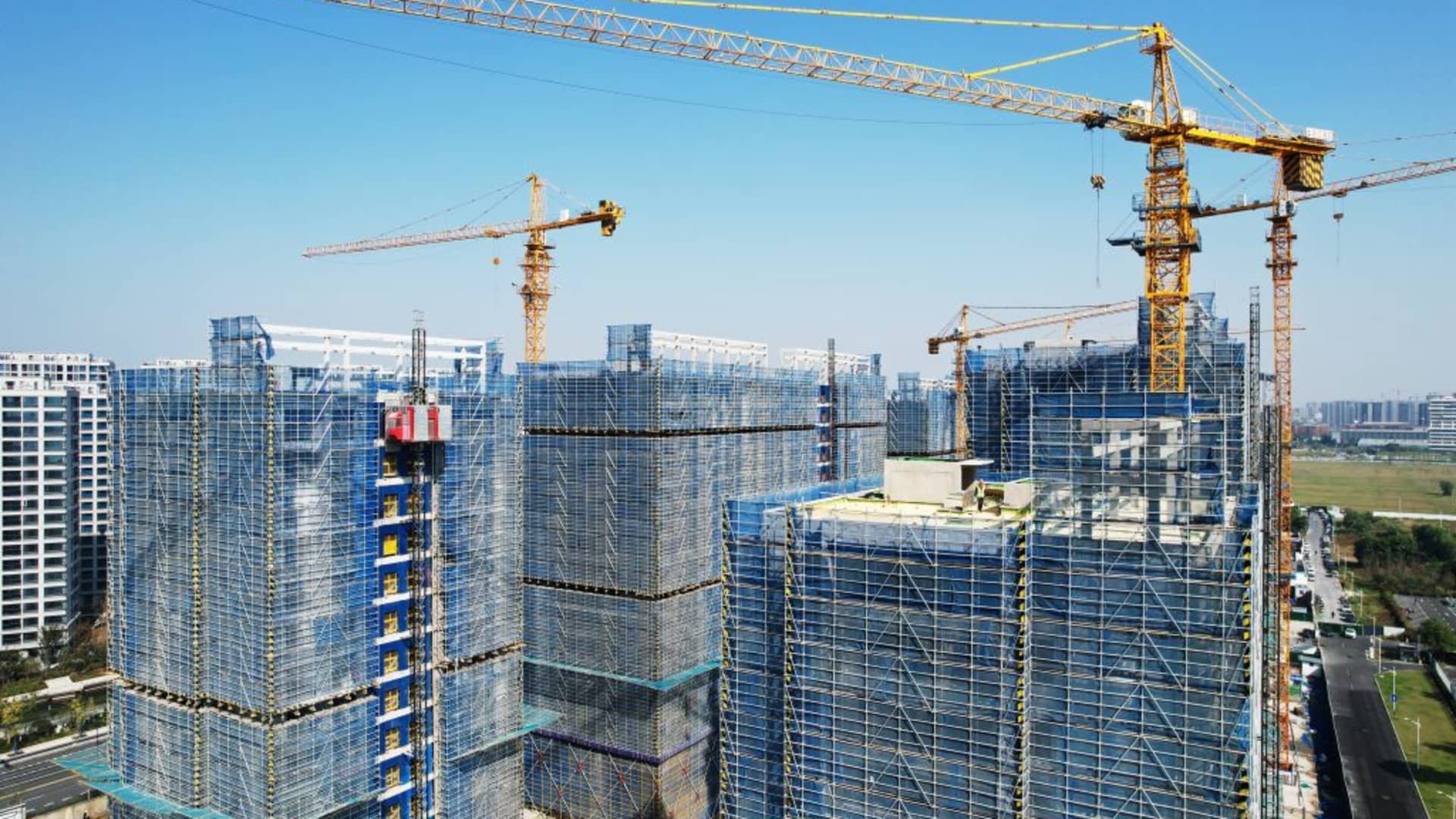HANGZHOU, CHINA – NOVEMBER 15, 2023 – An aerial photo shows a new property under construction in Hangzhou City, Zhejiang Province, China, Nov 15, 2023.
CFOTO | Future Publishing | Getty Images
Zhongzhi Enterprise Group filed for bankruptcy liquidation late Friday, as the Chinese shadow banking conglomerate is unable to repay its debt amid a deepening real estate crisis in the country.
The company has filed for bankruptcy on the grounds that it is “clearly” lacking the ability to repay debt and has insufficient assets to pay off its dues, according to a WeChat statement issued by Beijing’s First Intermediate People’s Court.
Shadow banks in China operate by pooling household and corporate savings to offer loans to invest in real estate, stocks, bonds, and commodities. Companies such as Zhongzhi have often financed many large Chinese property developers.
Zhongzhi had warned about its distressed financial situation as far back as August when Reuters reported that the company had told investors it was facing a liquidity crisis.
It then declared insolvency in a letter to its investors in November, shortly after which Beijing police commenced an investigation into the debt-laded shadow bank.
“While the firm’s creditors are mostly wealthy individuals rather than financial institutions, its collapse could nevertheless hurt general market confidence. It could also renew concerns over the trust industry and whether it would have broader and significant implications for the ailing real estate industry,” analysts at Commerzbank wrote in a client note.
The broader CSI 300 index fell 1.2% by early afternoon trading, weighed down by property stocks.
Hong Kong listed shares of property firms including Logan Group, China Vanke, Sunac and Longfor Group dropped between 2% and 3.6%.
More pain for shadow banks?
China’s government has in the last few years tried to limit the rapid growth of non-bank debt issued by shadow banks.
The largest banks in China are state-owned, making it harder for non-state-owned businesses to tap traditional banks for financing, which had helped spur a rise in shadow banking.
The country’s massive property sector has also been caught in the middle of a crackdown on shadow banking which was used by real estate companies to purchase land from local governments.
“We do not expect a government bailout as many Zhongzhi products are non-standard wealth management products that had long been discouraged or banned by Chinese regulators; some are comparable to a Ponzi scheme,” Zerlina Zeng, senior credit analyst at CreditSights told CNBC’s Squawk Box Asia.

“We will likely see more trust loan defaults as their underlying investment are local government financing vehicles and real estate debt … local governments will likely continue to prioritize public debt at the cost of trust loans,” Zeng warned.
China’s property market has been plagued by a debt crisis since 2020, with real estate giants such as Evergrande and Country Garden struggling to repay dues. Their cash flows have dried up, largely due to falling home sales.
Home sales growth and prices have remained sluggish, but Beijing kicked off a broader deleveraging of the once-bloated real estate sector — which accounts directly and indirectly for about one third of China’s economic activities.
— CNBC’s Clement Tan & Evelyn Cheng contributed to this story.







